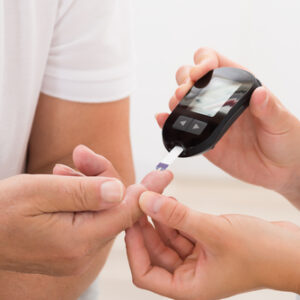What is cholesterol and its types?
Cholesterol doesn’t dissolve in water, so it can’t travel through your blood on its own. To help transport cholesterol, your liver produces lipoproteins.
Lipoproteins are particles made from fat and protein. They carry cholesterol and triglycerides (another type of lipid) through your bloodstream. The two major forms of lipoprotein are low-density lipoprotein (LDL, the bad cholesterol) and high-density lipoprotein (HDL), the good cholesterol.
Usually extra LDL is brought to the liver and is flushed out of the body via the excretory system. However if the cholesterol intake is higher than what our blood vessels can carry to the liver, it gets collected and stays on the walls of our vessels.If your blood contains too much LDL cholesterol (cholesterol carried by low-density lipoprotein), it’s known as high cholesterol. When left untreated, high cholesterol can lead to many health problems, including heart attack or stroke.
High cholesterol typically causes no symptoms. That’s why it’s important to get your cholesterol levels checked on a regular basis.
What are the ranges of cholesterol levels?
Total cholesterol levels less than 200 milligrams per deciliter (mg/dL) are considered desirable for adults. A reading between 200 and 239 mg/dL is considered borderline high and a reading of 240 mg/dL and above is considered high. Age and sex Total cholesterol.
| Age and sex | Total cholesterol |
| People aged 19 years and younger | Less than 170 mg/dL |
| Men aged 20 years and older | 125 mg/dL to 200 mg/dL |
| Women aged 20 years and older | 125 mg/dL to 200 mg/dL |
What factors affect cholesterol levels?
- Diet.
Saturated fat, trans fat and cholesterol in the food you eat increase cholesterol levels. Saturated and trans fat have the most impact on blood cholesterol. - Weight
In addition to being a risk factor for heart disease, being overweight can also increase your triglycerides. Losing weight may help lower your triglyceride levels and raise your HDL. - Age and sex
As we get older, cholesterol levels rise. Before menopause, women tend to have lower total cholesterol levels than men of the same age. After menopause, however, women’s LDL levels tend to rise and HDL can drop. - Heredity
Your genes partly determine how much cholesterol your body makes. High blood cholesterol can run in families. - Lack of physical inactivity
What are the risks of having high cholesterol?
Cholesterol circulates in the blood. As the amount of cholesterol in your blood increases, so does the risk to your health. High cholesterol contributes to a higher risk of cardiovascular diseases, such as heart disease and stroke. Cholesterol can join with other substances to form a thick, hard deposit on the inside of the arteries. This can narrow the arteries and make them less flexible – a condition known as atherosclerosis. If a blood clot forms and blocks one of these narrowed arteries, a heart attack or stroke can result. If you have other risk factors such as smoking, high blood pressure or diabetes, your risk increases even more.
How can you keep yourself healthy?
- Avoid tobacco. If you do smoke, quit. Smoking is bad for you in many ways, and reducing your level of good cholesterol is one of them.
- Diet. Limit the amount of Trans fats and saturated fat. Eat heart-healthy foods like fruits, vegetables, poultry, fish and whole grains. Limit red meat, sugary products and dairy products made with whole milk.
- Get more exercise. Try to get about 150 minutes of physical activity every week, or about 30 minutes per day for most days of the week.
- Keep a healthy weight. Maintain the body weight ideal for your height. Losing even 10% of your body weight makes a difference in your cholesterol levels.
- Control blood sugar and blood pressure. Make sure you follow your healthcare provider’s instructions for blood sugar levels, especially if you have diabetes, and for keeping blood pressure in the healthy range.






